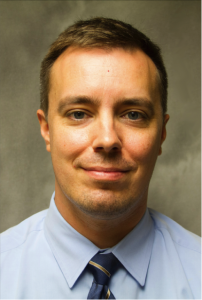 The Winona State University CLASP Lecture Series will host “War in the Digital Age” with David Speetzen at 7 p.m. Wednesday, Nov. 2, in Stark Auditorium, room 103.
The Winona State University CLASP Lecture Series will host “War in the Digital Age” with David Speetzen at 7 p.m. Wednesday, Nov. 2, in Stark Auditorium, room 103.
This event is part of the 2016-17 University Theme, Our Digital Humanity.
Speetzen will talk about three advances that are changing the shape of war: social media, cyber warfare and drones. He will discuss how social media facilitates communication and political organization through decentralized networks that are difficult to control.
The talk will also cover the emerging threat of cyber warfare, as developed nations and their militaries, economies, and infrastructures increasingly depend on networked systems for digital surveillance.
Speetzen will also talk about the controversy surrounding military drone usage.
In addition to describing these technological advances, Speetzen will address how they are likely to alter the shape of contemporary armed conflict over the next several decades. He will discuss the effects they will have on distribution of power in domestic and international contexts, and the extent to which they will force a revision of the legal and ethical frameworks used to evaluate war in the digital age.
Speetzen is an assistant professor of philosophy and director of the War, Peace & Terrorism program at WSU. He received his B.A. in English and Philosophy from the University of Minnesota Morris, and his Ph.D. in Philosophy from Washington University in St. Louis. He currently teaches courses in ethics and applied ethics, the philosophy of law, and the morality of war. His current research interests focus on the ethics of violence and force at the interpersonal level, especially the use and abuse of force by law enforcement officers.
CLASP is the Consortium of Liberal Arts and Science Promotion. The CLASP lecture series was initiated in 2004 and is intended to promote interdisciplinary discussion and exchange.
The 2016-17 University Theme, Our Digital Humanity, examines human life in the digital age, exploring the impact digital tools have on individuals, institutions, systems, societies, our interconnected world, and implications for our collective future. Our Digital Humanity seeks to explore how digital tools have changed the way WSU faculty, staff and students research, create, communicate, relate, learn and teach.
This event is free and open to the public and is available for stream via ITV in CF 103 on the Rochester campus.
For more information, contact David Speetzen at DSpeetzen@winona.edu.
